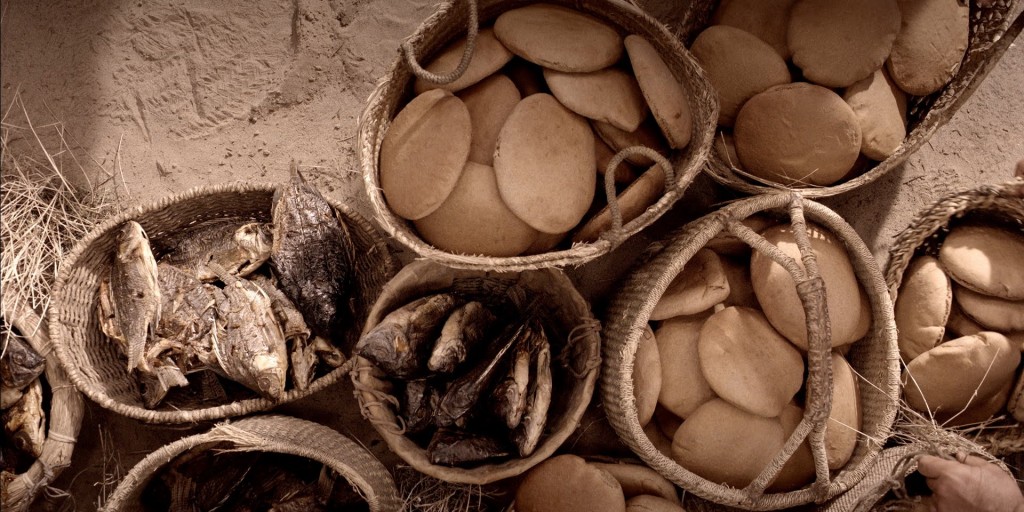
There are many miracle stories in the Scriptures that if we look at them, a little closer may not always be what they seem to be on the surface. The story of the feeding of the 5,000 (Luke 9:10-17) is the only miracle story that is in all four of the Gospels. A quick read leads one down the path that a miracle has occurred. Well, I think a miracle did in fact happen but not the one most people think happened. Let’s take a closer look.
On their return, the apostles told Jesus all they had done. He took them with him and withdrew privately to a city called Bethsaida. When the crowds found out about it, they followed him; and he welcomed them, and spoke to them about the kingdom of God, and healed those who needed to be cured.
The day was drawing to a close, and the twelve came to him and said, “Send the crowd away, so that they may go into the surrounding villages and countryside, to lodge and get provisions; for we are here in a deserted place.” But he said to them, “You give them something to eat.” They said, “We have no more than five loaves and two fish—unless we are to go and buy food for all these people.” For there were about five thousand men. And he said to his disciples, “Make them sit down in groups of about fifty each.” They did so and made them all sit-down. And taking the five loaves and the two fish, he looked up to heaven, and blessed and broke them, and gave them to the disciples to set before the crowd. And all ate and were filled. What was left over was gathered up, twelve baskets of broken pieces.
The story takes place after the Apostles have returned from their first mission. Jesus had sent them out, two by two, to minister to people in the area. They have now returned, and Jesus takes them off for a debriefing of what they had experienced on their journey. He needed, this time, to be alone with them, and he needed the time to be alone himself. His popularity was growing and time alone was becoming harder to come by. However, word got out where he was going to be, and so the people followed him and we are told that number was about 5,000 men. Keep in mind that this number did not include women so we were looking at more than say 10 to 12 thousand people.
The day was getting late, and they were miles from any town, and the Apostles were concerned that the people were going to starve if they were not sent on their way. Jesus tells his Apostles to feed them, and they reply that they do not have enough. Now the story tells us that they collected five loaves and fish, Jesus blessed it and gave it out, and there was enough to feed all present. So what happened?
Well, first off I will say that for a person of the 1st century to head off on any journey without provisions is unheard of. Sure we 21st-century folk might do that but not these people. They were used to traveling and knew what to bring. I suspect not only did they have food but they also had shelter. Let’s give them a little credit shall we.
So what about this miracle? Jesus tells them, “You give them something to eat.” The Apostles had food but obviously not enough to share with twelve thousand people, and the people had food but were a little uneasy about sharing with those around them. More than likely they had only brought enough for them, as had the Apostles, and were a little nervous about sharing with those around them, so they kept the food to themselves.
The Apostles took what they had and were willing to offer it to others and this act of sharing inspired others to do the same. So there was a miracle of sorts but not the miracle of producing food out of nothing but the miracle of changing people’s hearts so they would be willing to follow the example of the Apostles and share what they had with others. The food produced was not a supernatural production this was good old fashioned caring about others. In the end, there was more than enough because everyone helped out not just a few and no one was left hungry. The example of the story is we all have something to share with others, and we are required to share it with those who have less than we do.

